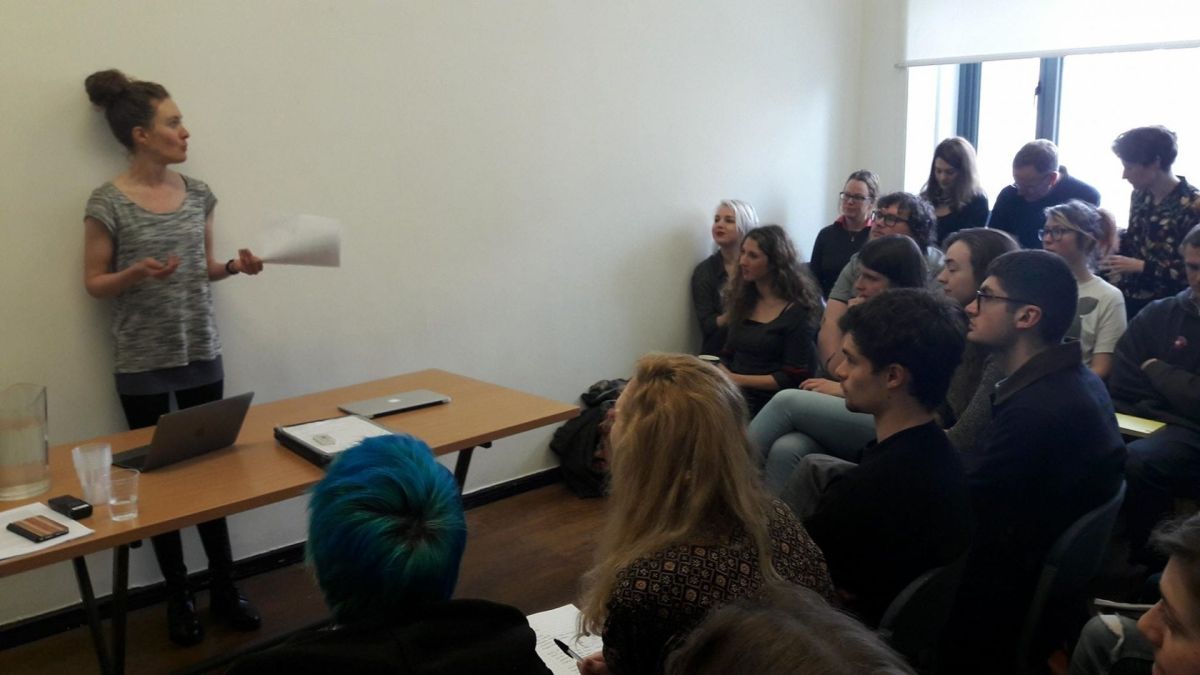Striking lecturers host ‘teach-outs’
By Hana Jafar

Staff across schools at the University of Manchester have launched a series of public teach-outs taking place throughout the weeks of industrial strike action, as part of a protest against the USS pension scheme.
The informal talks are not intended to replace missed course material, but as an alternative form of teaching and learning to encourage discourse, often with a socio-political focus. They may address the marketisation of higher education, or explore the historical context of past protest movements.
A recent teach-out hosted by the English Literature and American Studies department was held on Thursday the 8th of March in a packed room at the Students’ Union, with almost forty students and academics sitting, standing, and kneeling wherever space was available. Talks covered a myriad of subjects from grime rap in the courtroom to the politics of sugary desserts in literature.
Eithne Quinn, one of the academics contributing to the teach-out called it a “special event” offering a chance for “powerful political critique”.
Noelle Gallagher, head of the English Literature department delivered a talk called “Why study Literature of the Past?”. She commented that teach-outs were about making research work “visible and explicit” and highlighted the pressure that academics often faced in having to prove that their work was ‘relevant’ in the increasing marketisation of education.
Her talk argued that perceived “cultural capital” posed a risk of “forgetting” important issues, using the example of Jane Austen’s ‘photoshopped’ image on the ten pound note to illustrate the glamorisation of figures in Literature.
Academics were not the only speakers. Two final year students also played a video of University of Manchester Chancellor Lemn Sissay performing his poem ‘Making A Difference’ which was released at the Social Responsibility Awards in May. Their commentary of the poem emphasised the supposedly ironic nature of the poem, in light of increasing marketisation of education, and the University of Manchester’s refusal to divest from Fossil Fuels.
Ella Aurora, a second year student in attendance spoke to The Mancunion about how the teach-outs created “a sense of a community of people who share a love for academia and a desire to defend it [sic]”. Other teach-outs are scheduled to take place during strike days in cafes, bars, and inns. These are not limited just to talks, but poetry readings, discussions, and historical walking tours.
Many other Universities are following the same practice, with the likes of Cambridge, UCL, Oxford, Leeds, and Cardiff University hosting teach-outs alongside the National four week staff walk outs. With recent negotiations between Universities UK (UUK) and The University and Colleges Union (UCU) resulting in a continued strike, students across 61 Universities in the UK are increasingly worried about the impact of industrial action on their education.
Striking staff are not allowed to answer e-mails during strike days, teach course material, or assist with any course related queries. Some lecturers and tutors are allegedly making appearances at recruitment panels, rearranging missed lectures, or releasing podcasts. However, the majority of striking faculty members are refusing to reschedule missed lectures, maintaining their stance on pensions and industrial action.







